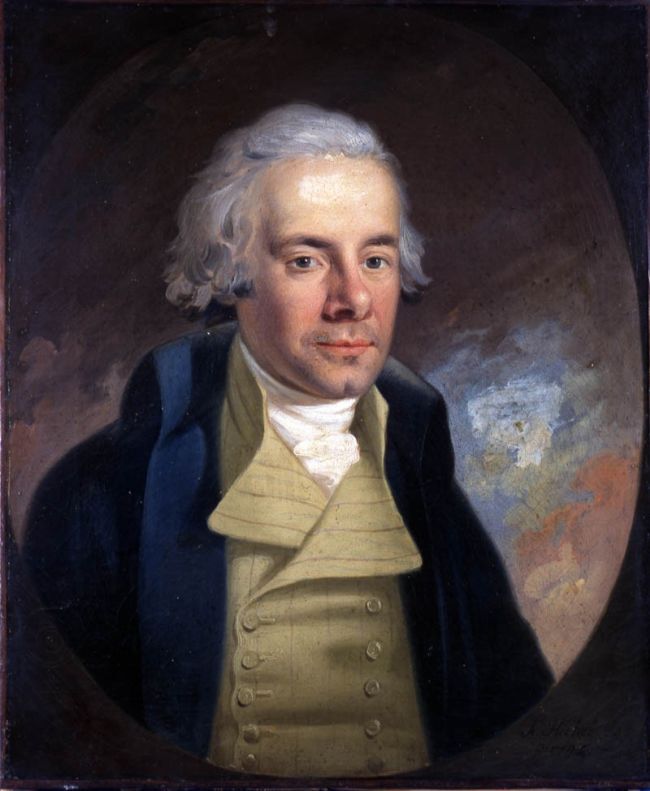Forty-six years. That’s
how long William Wilberforce labored to see the end of slavery in the British
Empire. His work began in earnest in 1787 when he first came into contact with
abolitionists such as Thomas Clarkson, Hannah More and Charles Middleton. These
activists found a kindred spirit in Wilberforce, whose conversion to the
Christian faith had given birth to an abiding concern for social reform—so much
so, in fact, that he wrote in his diary, “God Almighty has set before me two
great objects, the suppression of the slave trade and the reformation of
manners.”
In one of the last letters
of his life, 87-year-old John Wesley, wrote to the young member of England’s
parliament: “Unless God has raised you up for this very thing, you will be worn
out by the opposition of men and devils. But if God be for you, who can be
against you?”

The dark and dehumanizing
practice of slavery weighed heavy on Wilberforce. He first introduced a bill
proposing the abolition of slavery in 1791, which was soundly defeated. He brought
it forward again in 1792, and it was again defeated. And again in 1793. And
again in 1794. And again and again and again, each time finding new support and
gradually making more and more progress until in 1807, the Slave Trade Act was
finally passed by the British Parliament, which put slave trading to a formal
end. But that victory was only
the beginning—slavery itself was still legal in the British colonies.
So, Wilberforce’s campaigning continued through the end of his time in politics in 1826, until his death on July 29, 1833. Two days before he died, Wilberforce heard the news that bill for the abolition of slavery throughout the British colonies would become law. He said on his deathbed, “Thank God, that I should have lived to see this day and did not quit too soon.”
So, Wilberforce’s campaigning continued through the end of his time in politics in 1826, until his death on July 29, 1833. Two days before he died, Wilberforce heard the news that bill for the abolition of slavery throughout the British colonies would become law. He said on his deathbed, “Thank God, that I should have lived to see this day and did not quit too soon.”
Friends, today we are
facing a similar fight for the abolition of abortion. Wilberforce provides an
inspiring example that against insurmountable odds one person filled with
conviction can change the world. As I have studied his life over the years I
have come away with a few timeless lessons that we can apply to the current
struggle for the rights of the unborn.
We must do it together. Wilberforce had support from a network close friends
that urged him not to give up. John Newton was one of those friends. Newton had
been captain of a slave ship, transporting human beings from Africa to ports
where human flesh was sold. He later embraced Christianity and wrote “Amazing
Grace,” which became one of the best loved hymns in the world. The reformed
Newton became a counselor to his young friend Wilberforce, and at one crucial
point in his career persuaded him not to give up politics. Newton said it was “for
such a time as this” that Wilberforce had been placed in a position of
influence.
We as the church should be
able to put aside our petty difference and all be in agreement that abortion is
a non-negotiable issue when it comes to electing public officials. We ought to
vote values, not party lines. Together we must make our voice heard that
abortion is murder. We must preach this message over and over again until our culture
wakes up to the reality that we are in no position to boast of American superiority
when we have killed millions more than Hitler.
Failure is not final. It took Wilberforce his entire professional life to see the end of
the slave trade. We too must be committed to the long-haul. He faced setback
after setback and one string of disappointments followed by another defeat.
Still that didn’t make him a failure. What would have made him a failure is if
he had given up the good fight. The unborn cannot speak, so we must be their
voice and make a compelling case that they deserve a chance at life too. As
Wilberforce said about the ugliness of the slave trade, “You may choose to look
away, but you can never say again that you did not know.”
Perseverance separates the dreamers from the doers. Simply stated, it’s
always too soon to quit. Impossible goals always seem that way until you start
chipping away at them. As Wilberforce said, “We are too young to realize that some things are impossible, so we try them anyway. I take courage – I determine to
forget all my other fears, and I march forward with a firmer step in the full
assurance that my cause will bear me out.” -DM
No comments:
Post a Comment